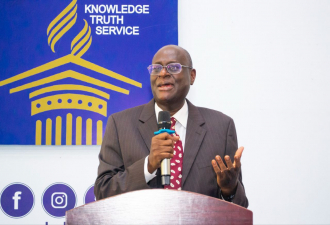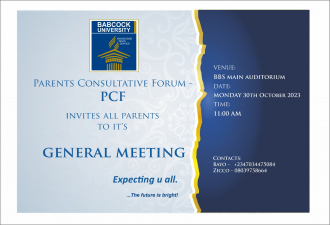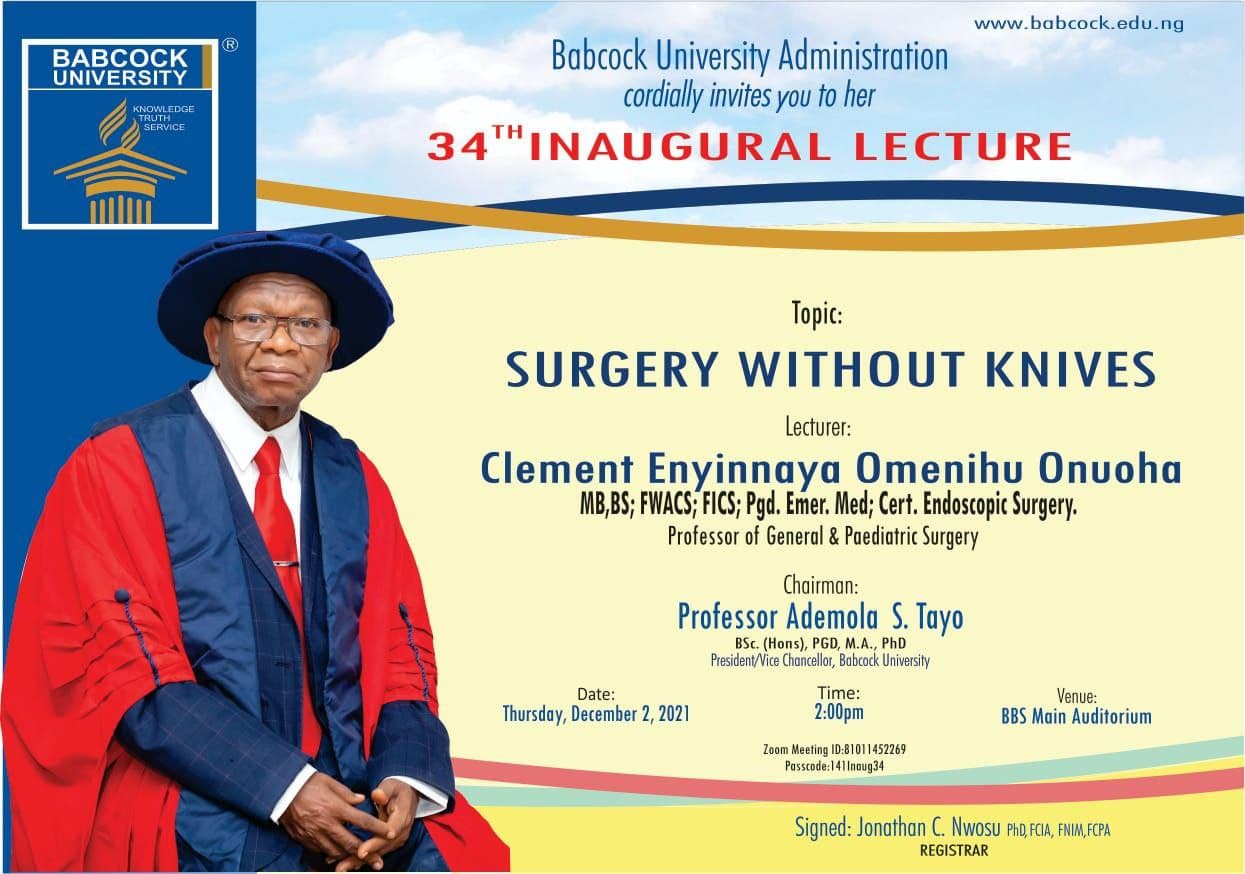The 34th Inaugural Lecture of Babcock University will be conducted by Professor Clement Enyinnaya Omenihu Onuoha and the title of the lecture is "Surgery without knives"
surgery without knives has opened a new way to handle old challenges in Medicine: fear of knives. Professor of General and Paediatric Surgery, Prof. Clement Onuoha revealed this while delivering the University’s 34th inaugural lecture December 4, 2021.
In his lecture, Surgery without Knives, he listed how the use of minimally invasive surgery has turned the Babcock University Teaching Hospital into a medical tourist destination in the country.
This surgery without knives involves the use of laparoscopes, and various types of endoscopes to diagnose and treat different types of diseases such as gastrojejunostomy with Roux-en-Yanastomosis for people with complicated ulcer. In general surgery, a Roux-en-Y anastomosis, is an end-to-side surgical procedure used to reconstruct the gastrointestinal tract. He said this method also produces permanent intentional weight loss without diet restrictions and use of drugs.
This supersedes previous procedures like wiring of the teeth, liposuction as well as dietary adjustments which are difficult to maintain with problem of recurrent or rebound obesity. Prof. Onuoha affirms there is certainly a future in surgery without knives. He said since it became functional at BUTH, over 50 surgeries involving acute appendicitis, ear, nose and throat (ENT) as well as removal of Hernia and gall stones have been performed using this procedure.
Other surgeries that have been carried out without knives are fibroids, ovarian tumours, family (tubal litigation) and over 1000 diagnostic and therapeutic procedures. He advised people above 40 years to go for screening endoscopy using this procedure to check for intestinal growth. With this procedure, he said the patient may not need another test for the next 10 years.
Professor Onuoha, however, said if a growth is detected during the endoscopic screening, it could be treated early before it became too late. With these possibilities, surgery without knives has come to stay.



